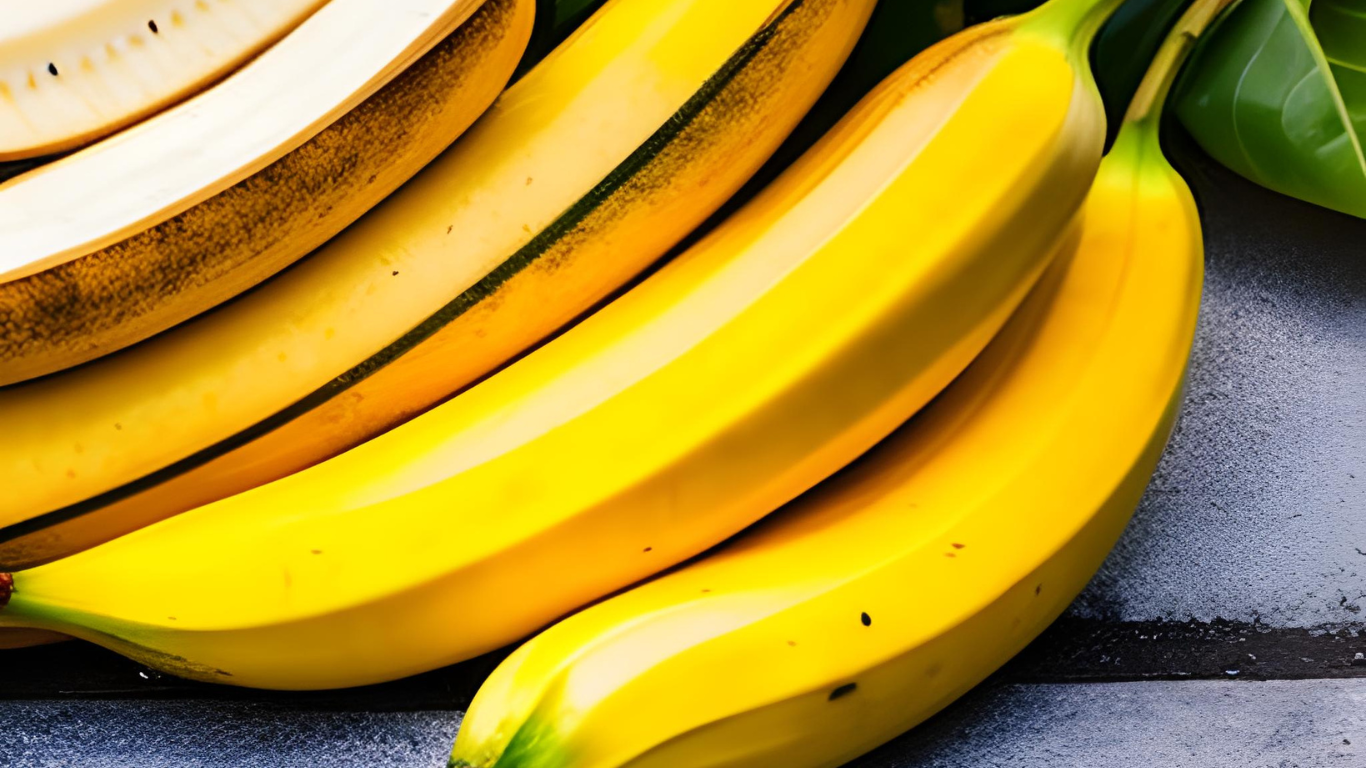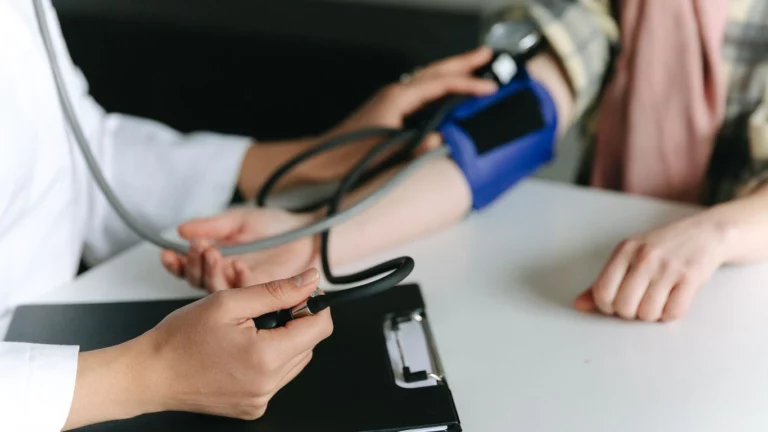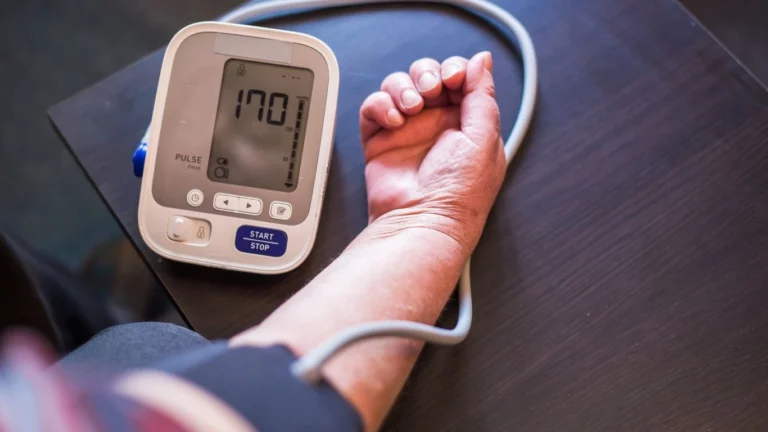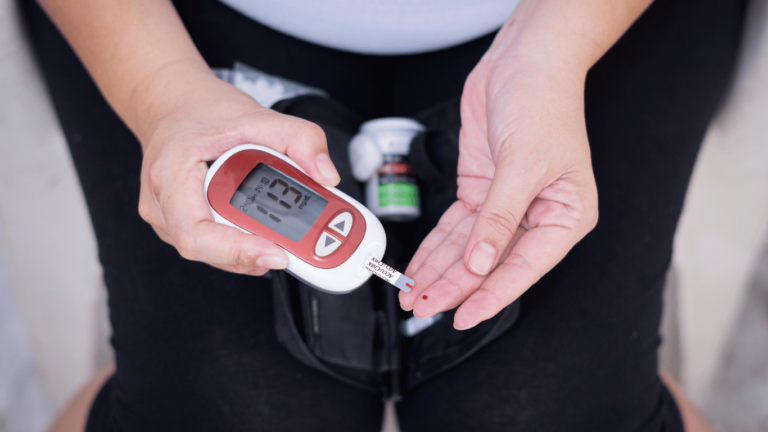Do Bananas Lower Blood Pressure?
Learn how bananas may influence blood pressure levels and the importance of a balanced diet for cardiovascular health. Discover studies on potassium’s impact on hypertension and its potential benefits
Welcome to this comprehensive guide on the potential link between bananas and blood pressure. High blood pressure, also known as hypertension, is a prevalent health concern worldwide. Diet plays a significant role in managing blood pressure levels, and bananas, a popular and nutritious fruit, have been a subject of interest for their potential benefits in this area. In this article, we will delve into the scientific evidence, nutritional content, and practical considerations of incorporating bananas into your diet to support healthy blood pressure levels.
Introduction
Overview of Blood Pressure and Its Importance
Blood pressure is the force exerted by circulating blood on the walls of the arteries. It is a crucial physiological parameter that indicates the health of the cardiovascular system. Normal blood pressure is essential for proper blood flow and the delivery of oxygen and nutrients to various organs and tissues in the body. Abnormally high blood pressure, or hypertension, can lead to serious health complications, such as heart disease, stroke, and kidney problems.
Hypertension affects millions of people worldwide, and its prevalence is on the rise due to various factors, including sedentary lifestyles, poor dietary choices, and stress. It is often referred to as the “silent killer” because it typically presents no symptoms in its early stages but can cause significant damage to the blood vessels and organs over time. Therefore, understanding ways to manage blood pressure is of utmost importance for overall health and well-being.
Understanding Hypertension and Its Health Implications
Hypertension is a chronic medical condition where the blood pressure consistently remains elevated above the normal range. The condition often develops over time and can be influenced by factors like genetics, lifestyle, and diet. If left unmanaged, hypertension can put significant strain on the heart and blood vessels, increasing the risk of cardiovascular events and organ damage.
Several factors contribute to the development of hypertension, including obesity, lack of physical activity, excessive sodium intake, and chronic stress. Genetics also play a role, as individuals with a family history of hypertension are at a higher risk of developing the condition. Controlling blood pressure is crucial for reducing the risk of heart disease, stroke, and other cardiovascular complications.
The Role of Diet in Managing Blood Pressure
Dietary choices play a vital role in managing blood pressure levels. A balanced diet that includes a variety of nutrients can positively impact cardiovascular health. Foods that are high in sodium, saturated fats, and added sugars should be limited, while those that are rich in potassium, fiber, and heart-healthy fats are encouraged.
The Dietary Approaches to Stop Hypertension (DASH) diet is a well-known eating plan recommended for individuals with hypertension. The DASH diet emphasizes fruits, vegetables, whole grains, lean proteins, and low-fat dairy products while minimizing processed foods and excessive sodium intake. Bananas, with their potassium-rich profile and other essential nutrients, fit perfectly into the DASH diet and other heart-healthy meal plans.
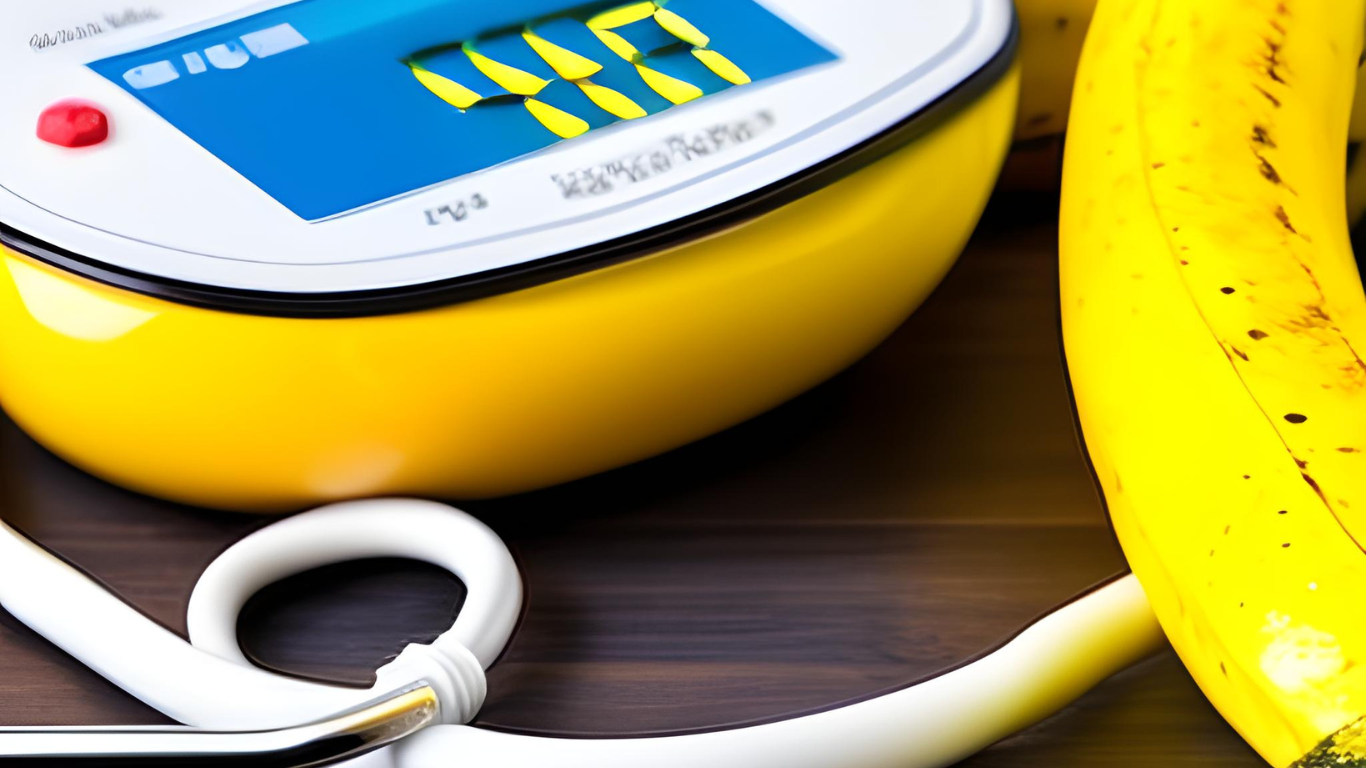
Bananas and Blood Pressure
Nutritional Profile of Bananas
Bananas are rich in essential vitamins, minerals, and dietary fiber. A medium-sized banana contains approximately 105 calories and is a good source of vitamin C, vitamin B6, and potassium. Additionally, bananas are naturally free of fat and cholesterol, making them a heart-friendly fruit choice.
Potassium is a crucial mineral for maintaining proper blood pressure levels. It helps counteract the effects of sodium, which can lead to increased blood pressure when consumed in excess. In addition to potassium, bananas contain other essential nutrients that support overall health, including vitamin B6, vitamin C, manganese, and dietary fiber.
Potassium Content in Bananas and Its Impact on Blood Pressure
Potassium is one of the most significant contributors to bananas’ potential blood pressure-lowering effects. It is an electrolyte that helps balance fluids in the body and aids in nerve and muscle function. Potassium also plays a crucial role in maintaining a healthy heartbeat and proper muscle contractions, including those of the heart.
Several studies have shown that increasing potassium intake can lead to a reduction in blood pressure levels. According to the National Health and Nutrition Examination Survey (NHANES), most Americans do not consume enough potassium, which may contribute to the high prevalence of hypertension in the country. Incorporating potassium-rich foods like bananas can help bridge this gap and support blood pressure management.
It’s important to note that while potassium is essential for blood pressure regulation, taking potassium supplements should only be done under the guidance of a healthcare professional, as excessive potassium intake can also have adverse effects on health.
Other Key Nutrients in Bananas that Support Cardiovascular Health
Aside from potassium, bananas contain other nutrients that are beneficial for cardiovascular health. For instance, the vitamin B6 in bananas is essential for converting homocysteine, an amino acid linked to heart disease, into harmless molecules. Vitamin B6 also plays a role in neurotransmitter synthesis, supporting proper nerve function and cognitive health.
Vitamin C, a powerful antioxidant found in bananas, helps protect the body’s cells from damage caused by free radicals. This antioxidant action may contribute to cardiovascular health by reducing oxidative stress and inflammation in the blood vessels.
Furthermore, the dietary fiber in bananas supports digestive health and may have additional benefits for heart health. Soluble fiber, in particular, can help lower cholesterol levels in the blood, further supporting cardiovascular function.
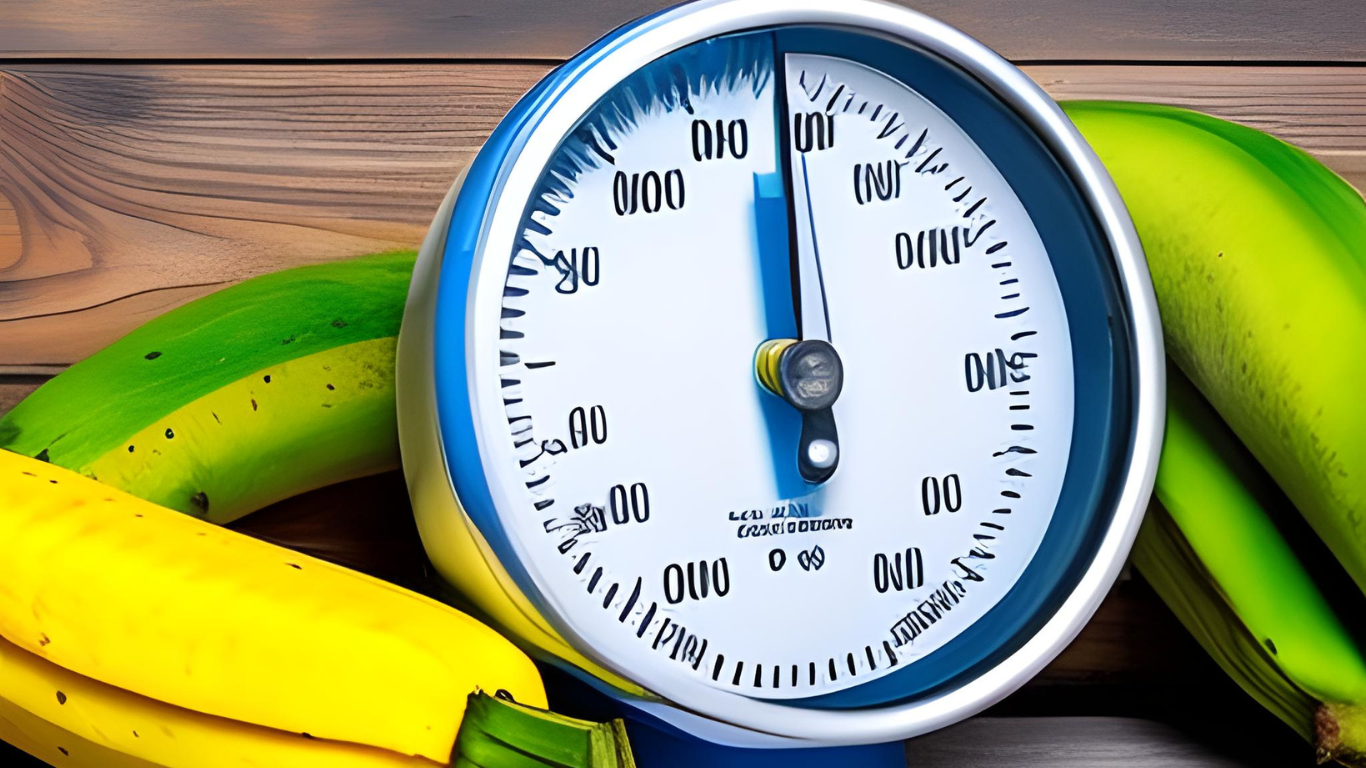
Scientific Evidence: Do Bananas Lower Blood Pressure?
Studies and Research on the Effects of Bananas on Blood Pressure
Several scientific studies have investigated the potential link between banana consumption and blood pressure regulation. While more research is needed to establish a definitive causal relationship, some studies have shown promising results.
A study published in the American Journal of Clinical Nutrition examined the effects of potassium-rich foods, including bananas, on blood pressure levels. The researchers found that participants who consumed a high-potassium diet experienced significant reductions in both systolic and diastolic blood pressure compared to those on a low-potassium diet.
Another study published in the New England Journal of Medicine analyzed data from the Nurses’ Health Study and Health Professionals Follow-Up Study, which included over 130,000 participants. The study found that higher potassium intake was associated with a reduced risk of developing hypertension and cardiovascular disease.
While these studies provide valuable insights, more randomized controlled trials are needed to fully understand the specific effects of bananas on blood pressure regulation and the mechanisms involved.
Mechanisms by Which Bananas May Influence Blood Pressure Levels
The exact mechanisms through which bananas may influence blood pressure are not fully understood. However, researchers believe that the high potassium content in bananas may be a significant contributing factor.
Potassium helps relax blood vessel walls, promoting better blood flow and potentially reducing blood pressure. When potassium levels are low, the body retains sodium, leading to fluid retention and increased blood volume, which can raise blood pressure. By increasing potassium intake, such as through consuming bananas, this process is reversed, leading to vasodilation and improved blood pressure control.
In addition to potassium, the other heart-healthy nutrients in bananas may work synergistically to support cardiovascular health. The antioxidants, vitamin C, and fiber in bananas may help reduce inflammation, oxidative stress, and cholesterol levels in the blood, all of which are factors that influence blood pressure and overall heart health.
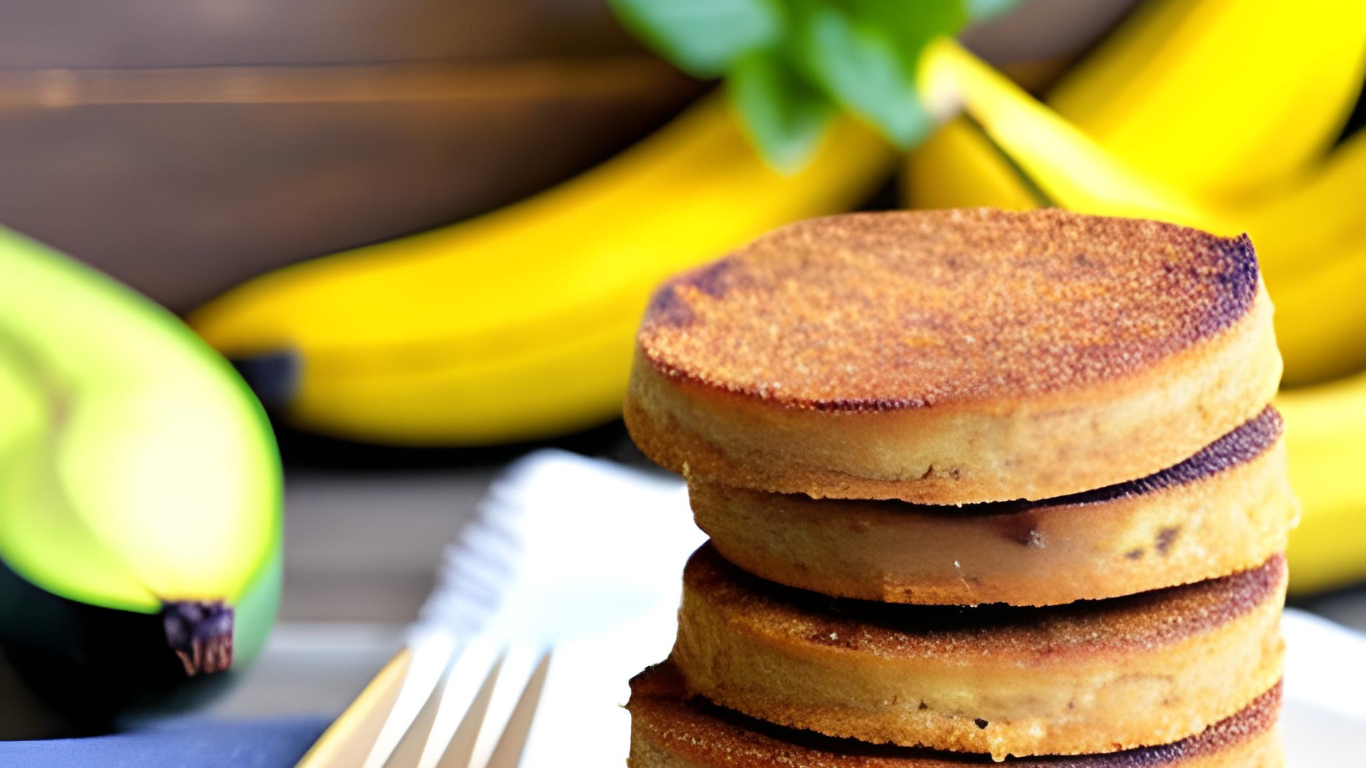
Incorporating Bananas into Your Diet for Blood Pressure Management
Serving Size and Frequency Recommendations
When incorporating bananas into your diet for blood pressure management, it’s essential to consider serving sizes and frequency. A medium-sized banana is generally considered one serving and provides a substantial amount of potassium. You can enjoy bananas as part of your daily fruit intake, along with other potassium-rich foods.
While there are no strict guidelines for the exact number of bananas to consume per day, experts generally recommend aiming for 3-4 servings of fruits daily for overall health. However, individual dietary needs may vary, so it’s essential to listen to your body and consult with a healthcare professional if you have specific health concerns.
Combining Bananas with Other Blood Pressure-Lowering Foods
For optimal blood pressure management, it’s beneficial to combine bananas with other foods known for their blood pressure-lowering properties. These may include leafy greens, berries, oats, and low-fat dairy products. Creating balanced and nutritious meals that incorporate these foods can help support cardiovascular health.
Here are some ideas for incorporating bananas into meals that promote heart health:
- Top your morning oatmeal with sliced bananas and a sprinkle of cinnamon.
- Add sliced bananas to a smoothie with spinach, Greek yogurt, and a splash of almond milk.
- Enjoy a refreshing salad with mixed greens, strawberries, and banana slices, drizzled with a light vinaigrette.
- Blend frozen bananas with cocoa powder and a dollop of peanut butter for a delicious and nutritious dessert.
Delicious and Healthy Banana Recipes
Bananas are incredibly versatile and can be incorporated into a wide variety of delicious and healthy recipes. Whether it’s adding sliced bananas to your morning oatmeal, blending them into smoothies, or using mashed bananas in baked goods as a natural sweetener, there are numerous creative ways to enjoy this heart-healthy fruit.
Here are some more mouthwatering banana recipes to try:
- Banana Walnut Bread: This classic banana bread recipe is enhanced with the nutty goodness of walnuts for added texture and flavor.
- Grilled Banana Sundaes: Slice bananas and grill them for a caramelized touch, then top with a scoop of low-fat frozen yogurt and a drizzle of honey.
- Banana and Almond Butter Overnight Oats: Prepare a batch of overnight oats with almond butter and sliced bananas for a quick and nutritious breakfast on the go.
- Banana Smoothie Bowl: Blend bananas with frozen berries and Greek yogurt, then top with granola, chia seeds, and a sprinkling of fresh fruit.
Remember that moderation is key, as bananas, like all foods, should be part of a balanced diet that includes a variety of nutrient-rich options.

Lifestyle Factors and Blood Pressure Control
The Importance of Regular Physical Activity
Regular physical activity is an essential component of blood pressure management. Engaging in aerobic exercises, such as brisk walking, jogging, or swimming, can help improve cardiovascular health and lower blood pressure. Exercise not only strengthens the heart and blood vessels but also helps with weight management and stress reduction.
Aim for at least 150 minutes of moderate-intensity aerobic activity or 75 minutes of vigorous-intensity aerobic activity per week, along with muscle-strengthening activities on two or more days per week. Remember that every bit of movement counts, so even short bursts of activity throughout the day can contribute to your overall fitness.
Managing Stress and Its Impact on Blood Pressure
Chronic stress can contribute to hypertension and negatively impact heart health. When stressed, the body releases stress hormones like cortisol and adrenaline, which can temporarily increase blood pressure. Over time, ongoing stress can lead to sustained high blood pressure and an increased risk of heart disease.
Practicing stress-reduction techniques, such as meditation, yoga, or spending time in nature, can help manage stress levels and support blood pressure control. Exercise is also an excellent way to reduce stress, as physical activity releases endorphins, the body’s natural mood elevators.
Additionally, incorporating bananas, which contain mood-boosting nutrients like vitamin B6 and tryptophan, into your diet can aid in stress management.
Other Dietary Considerations for Hypertension
While bananas can be a valuable addition to a blood pressure-conscious diet, it’s essential to consider other dietary factors as well. Reducing sodium intake is particularly crucial for managing hypertension, as high sodium levels can lead to fluid retention and increased blood pressure.
The American Heart Association recommends limiting sodium intake to 2,300 milligrams (mg) per day for most adults, and ideally, aiming for no more than 1,500 mg per day for individuals with hypertension, African Americans, and those over the age of 50.
In addition to reducing sodium, it’s beneficial to focus on a diet rich in fruits, vegetables, whole grains, lean proteins, and healthy fats. Including foods high in potassium, magnesium, and calcium can also support blood pressure management.
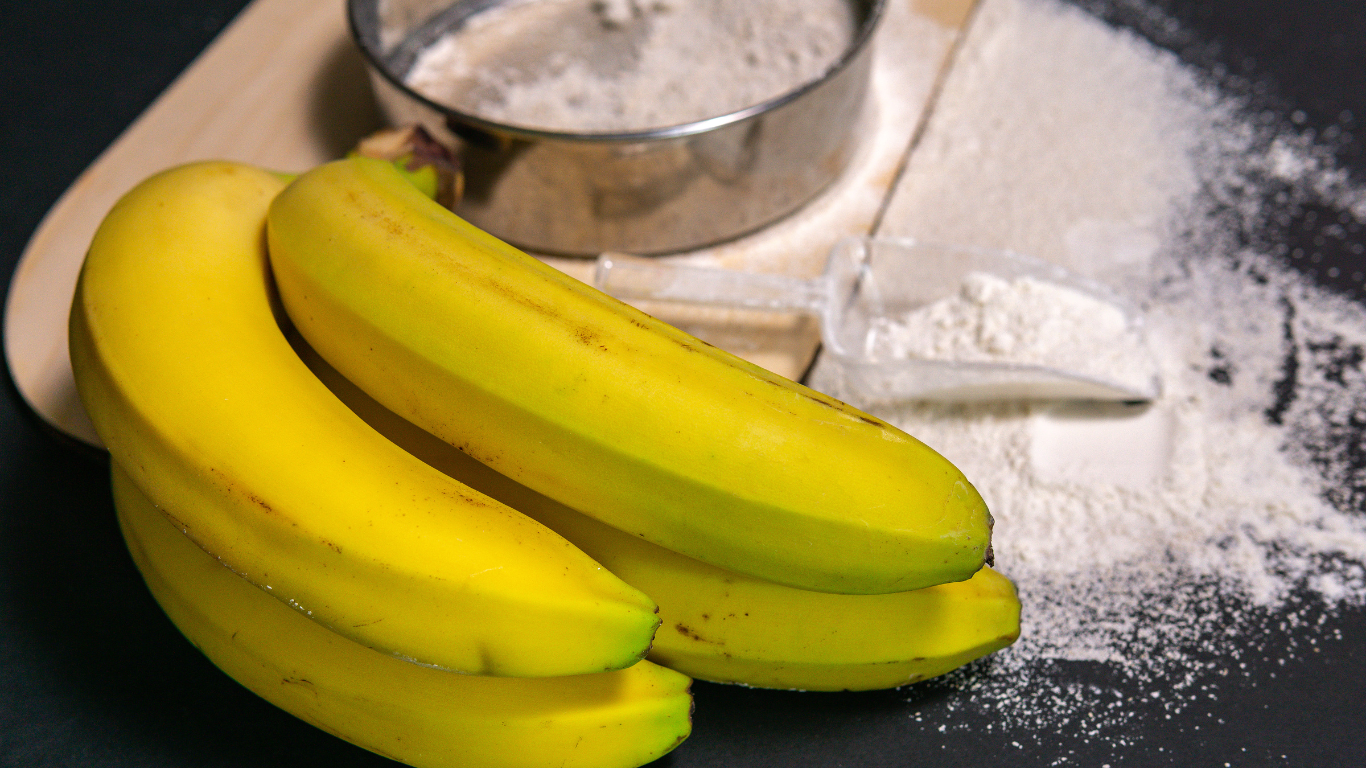
Precautions and Considerations
Allergies and Intolerances to Bananas
Although bananas are generally safe and well-tolerated, some individuals may have allergies or intolerances to this fruit. Banana allergies are relatively rare but can cause symptoms such as itching, swelling, or digestive discomfort. If you experience any adverse reactions after consuming bananas, it’s essential to seek medical advice and consider alternative dietary options.
If you suspect a banana allergy, it’s crucial to read food labels carefully, as bananas or banana-derived ingredients may be present in processed foods, medicines, or personal care products.
Balancing Banana Consumption with Overall Diet
While bananas offer various health benefits, it’s crucial to maintain a balanced diet that includes a wide range of nutrient-rich foods. Relying solely on bananas for blood pressure management may not provide all the necessary nutrients for overall well-being.
Consider incorporating a variety of fruits, vegetables, whole grains, lean proteins, and healthy fats into your diet to ensure you are meeting all your nutritional needs. Experiment with different foods and recipes to create a diverse and enjoyable eating plan that supports heart health and overall wellness.
Consulting with a Healthcare Professional
If you have pre-existing medical conditions or concerns about managing your blood pressure, it’s crucial to consult with a healthcare professional. They can provide personalized advice and recommendations based on your individual health needs and circumstances.
Your healthcare provider can help you create a tailored plan for blood pressure management, which may include dietary changes, exercise recommendations, stress management techniques, and medication if necessary. Regular check-ups and monitoring are essential for tracking your progress and making any necessary adjustments to your health regimen.
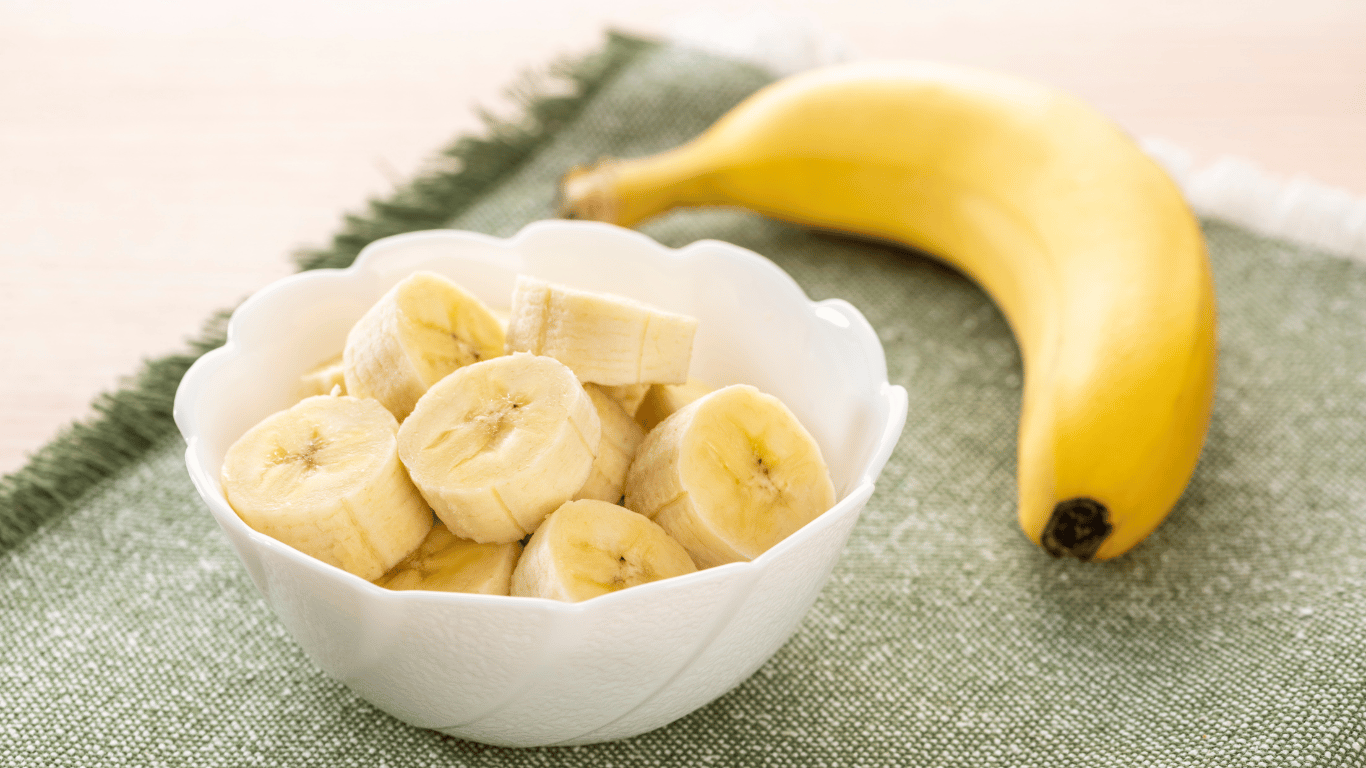
Conclusion
Summary of the Potential Benefits of Bananas on Blood Pressure
While more research is needed to establish a definitive link between bananas and blood pressure regulation, the high potassium content and other heart-healthy nutrients in bananas make them a promising addition to a blood pressure-conscious diet. Including bananas as part of a balanced and nutritious meal plan, along with regular physical activity and stress management, can contribute to overall heart health.
By focusing on a diet rich in fruits, vegetables, whole grains, lean proteins, and healthy fats, individuals can support their cardiovascular health and reduce the risk of hypertension and related complications. Remember that lifestyle factors, such as regular exercise, stress management, and adequate sleep, also play vital roles in blood pressure control.
Final Thoughts and Recommendations
Managing blood pressure is essential for maintaining cardiovascular health and reducing the risk of related complications. Bananas, with their potassium-rich composition and other essential nutrients, offer a tasty and convenient option to support blood pressure management. However, it’s essential to remember that a holistic approach to heart health involves a combination of dietary choices, physical activity, stress reduction, and regular healthcare check-ups.
As always, consult with a healthcare professional for personalized advice and guidance on managing your blood pressure effectively. They can provide valuable insights based on your individual health status and help you create a comprehensive plan for maintaining optimal cardiovascular health.
Thank you for reading this comprehensive article on the potential relationship between bananas and blood pressure. We hope you found this information informative and empowering as you take steps toward a heart-healthy lifestyle.
Appendices
References
- He FJ, MacGregor GA. Beneficial effects of potassium on human health. Physiol Plant. 2008 Nov;133(4):725-35. doi: 10.1111/j.1399-3054.2008.01090.x. PMID: 1901875.
- Appel LJ, Moore TJ, Obarzanek E, et al. A clinical trial of the effects of dietary patterns on blood pressure. DASH Collaborative Research Group. N Engl J Med. 1997 Apr 17;336(16):1117-24. doi: 10.1056/NEJM199704173361601. PMID: 9099655.
- Cassidy A, Mukamal KJ, Liu L, Franz M, Eliassen AH, Rimm EB. High anthocyanin intake is associated with a reduced risk of myocardial infarction in young and middle-aged women. Circulation. 2013 Jan 15;127(2):188-96. doi: 10.1161/CIRCULATIONAHA.112.122408. Epub 2012 Dec 5. PMID: 23212379; PMCID: PMC3683816.
- Hartley L, Flowers N, Holmes J, Clarke A, Stranges S, Hooper L, Rees K. Green and black tea for the primary prevention of cardiovascular disease. Cochrane Database Syst Rev. 2013 Jun 18;(6):CD009934. doi: 10.1002/14651858.CD009934.pub2. PMID: 23780706.
- NHS. (2021). High blood pressure (hypertension). Retrieved from https://www.nhs.uk/conditions/high-blood-pressure-hypertension/
FAQs
- Q: Can bananas lower blood pressure? A: While more research is needed, bananas’ potassium content and other heart-healthy nutrients make them a potentially beneficial addition to a blood pressure-conscious diet.
- Q: How many servings of fruits should I have daily for heart health? A: Experts generally recommend aiming for 3-4 servings of fruits daily as part of a balanced diet that supports cardiovascular health.
- Q: Can I rely solely on bananas for blood pressure management? A: It’s important to maintain a diverse diet that includes a variety of nutrient-rich foods in addition to bananas to ensure overall well-being.
Disclaimer
The information provided in this article is for general informational purposes only and should not be considered as medical advice. Consult with a qualified healthcare professional for personalized recommendations and guidance regarding your specific health conditions and dietary needs. The authors and publishers of this article are not liable for any potential consequences resulting from the use of the information provided.

Camellia Wulansari is a dedicated Medical Assistant at a local clinic and a passionate health writer at Healthusias.com. With years of hands-on experience in patient care and a deep interest in preventive medicine, she bridges the gap between clinical knowledge and accessible health information. Camellia specializes in writing about digestive health, chronic conditions like GERD and hypertension, respiratory issues, and autoimmune diseases, aiming to empower readers with practical, easy-to-understand insights. When she’s not assisting patients or writing, you’ll find her enjoying quiet mornings with coffee and a medical journal in hand—or jamming to her favorite metal band, Lamb of God.

